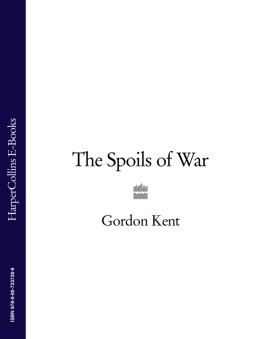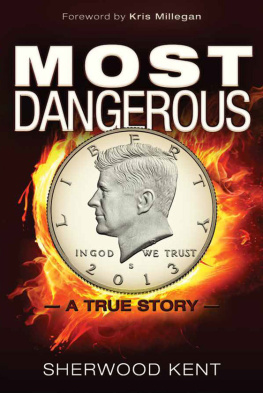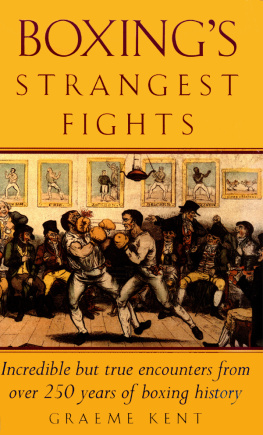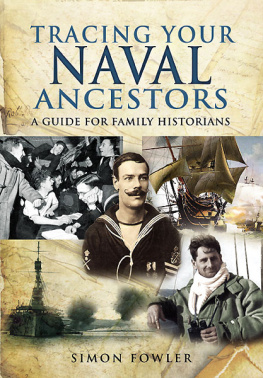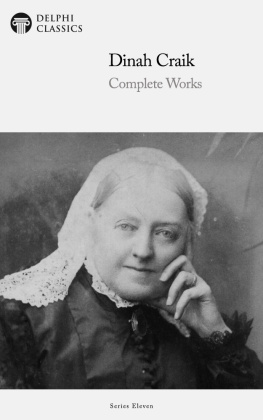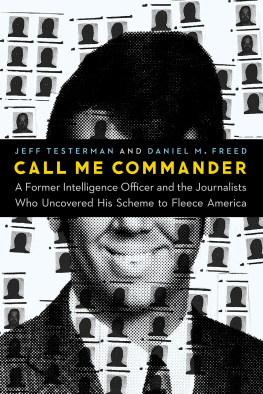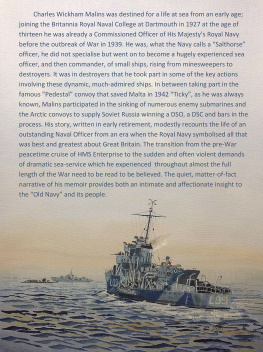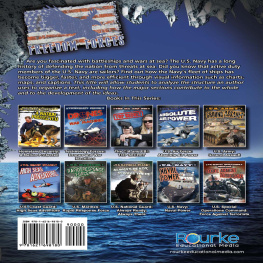T. Cuyler young
Donald G. Cameron
They went further than seemed possible
The Kosovo-Albania Border, 1997
The late afternoon rain sent the Albanian soldiers into the cover of the trees. Dukas thought the move was probably for the best. What he had seen of the Albanians scared him, and he was glad when they walked off up the road to the stand of oak trees, shouting at each other and carrying their rifles across their necks like ox yokes.
The rain beat on the windshield of Dukass borrowed Land Rover and the wipers droned back and forth, harmonizing with the heater and the raindrops on the roof, washing away some of the mud accumulated in a nine-hour drive across the former Yugoslavia. There was mud from Bosnia and mud from Croatia and a little mud from Kosovo, all washing off into the ruined tarmac of a road in Albania.
Have a little faith, okay, muttered the Mossad guy in the back seat. Actually, there were two Mossad guys in the back seat, but one of them was so obviously a bureaucratic functionary that Dukas ignored him. Dukas tried to adjust his body language so that he was not telegraphing his views on the afternoon quite so blatantly. He looked back.
When do you want to call this off? he asked.
Give the man another hour.
His name was Shlomo, he had said. Dukas thought the name was funny, but the man himself was serious. Now, he moved his hand slightly to indicate that, no, he didnt expect their quarry to appear either, and that, yes, they were going to wait an hour because he, Shlomo, was under the scrutiny of someone who had sent a bureaucrat to watch him.
Dukas liked Shlomo. And he didnt mind helping the Israelis, as long as his own investigations into Bosnian Muslim war crimes benefited from helping them. He pulled a headset up over his ears and keyed his radio.
Roger, Squid, I copy you, the voice on the other end said. The Canadians he had picked up as an ops team thought it was hilarious that Dukas was attached to the US Navy, and they called him Squid at every opportunity.
Give it another six zero minutes.
Roger, copy. The Canadians were in cover along the Albanian side of the border. Dukas had looked for them a few times and failed, but they answered radio calls and they had stayed in their positions all day; now they would all be drenched in addition to tired. By contrast, the Albanians had a roaring fire going in the tree line; at dusk, both the smoke and the fire must have shown for miles. But Dukas would not have been allowed here without the support of the Albanians.
A column of headlights showed across the ridge to the south in Kosovo. Dukas and Shlomo had their binoculars up in an instant and then back in their laps. They both sighed on much the same note.
Hell come in this lot, the bureaucrat said.
Dukas shook his head. Shlomo said, No, David. Its just local militia crossing the border to buy weapons.
Why cant he be in among them? He could be with them. The Mossad bureaucrat, who had introduced himself as David, sounded as if he believed that he could make his assertions true by repeating them. He had the makings of a politician, Dukas thought.
He doesnt have that kind of contact.
You dont know that. David sounded petulant.
Dukas listened to them and wondered what made their target, a Lebanese, so important that David would get his penny loafers dirty coming to collect him, especially as it was Dukas who would have to do the work and who would do the interrogation. As was almost always the case when he was working with foreign intelligence people, Dukas suspected that he was being used. He was a cynic. But he was usually right.
He cleared his throat. The two men in the back fell silent. How is it that a Muslim Lebanese doesnt have contacts in Kosovo? he asked.
Hes a city boy, Shlomo said.
You guys said he was an arms dealer. Dukas turned to look into the back seat. It was dusk, and Shlomos face was almost invisible. David was leaning forward into the last sunlight. He seemed excited.
I said his efforts helped to put guns in the hands of the Muslims in Bosnia, Shlomo said.
The convoy of headlights over in Kosovo had descended the ridge and made it to the checkpoint at the Albanian border.
Dukas kept going. Why does he sell arms to Bosnians and not Kosovans?
David said, Why dont you do your job and let us do ours? His words hung there for a few seconds. Shlomos hand twitched, as if he was going to try and withdraw the words his partner had said.
Dukas looked at his watch and turned to face the back seat again, bunching the skirts of his raincoat in his fist. My job is to aid the UN and the War Crimes Tribunal in The Hague in the apprehension of war criminals.
He turned and met Davids eyes, but the younger man returned his look with indifference. Dukas continued, If the guy were after isnt of interest to me, my job will include dropping you guys at an airport and driving back the nine hours it took me to get here. With nothing. And unless it suits me, my job has nothing to do with helping you do yours.
David held his gaze, and then his eyes flicked away as he seemed to lose interest. He shrugged.
Shlomo shook his head.
Dukas was considering a further lecture on the subject when he heard a radio tone in his headset.
Yeah?
Palm Two has movement on the hillside.
Dukas looked over his shoulder through the rain-streaked glass reflexively; in fact, he couldnt see anything except a yellow smudge where the Albanians had their fire. Just Albanians, he said.
Palm Two says its a sniper with high-res optics and a ghillie suit, reported the voice in his ear.
Dukass head snapped up.
Whats happened? Shlomo asked from the back seat.
The windshield wipers cycled. Fifty meters below them, at the checkpoint, an ancient white Zil was being searched thoroughly while its former occupants stood and smoked. One man had a briefcase. This drew Dukass eye.
Surprise, surprise.
Thats our guy. Dukas waved. He was out of the car and moving. He stopped to clutch his headset to his ear. The guy at three oclock in the car being searched now. No, not in the car. Next to the car. Yeah! Briefcase. Take him! He started down the rocky hillside, paused to draw a heavy revolver from his shoulder holster.
Shlomo caught up with him and they ran down the hill together, raincoats flapping like ungainly wings.
Boom.
The shot sounded like a cannon. Two Canadian soldiers, halfway out of their concealment, froze and looked around for the source.
In his headset, the Canadian voice said, Sniper! and then, Palm Two, do you have a shot?
Pop, pop.
Dukas was now a bystander, lying full length in the wet bracken between two stones with Shlomo wedged in next to him.
Pop, pop.
Hawk One, this is Palm Two. Hes gone. No hits.
Is it safe to move? Dukas asked. He was soaked; runoff from the hillside was going right down his pants.
Wait one.
It took the Canadians ten minutes to clear the hillside. They found a small patch of dark khaki polyester and a one-inch square of flannel.
Thats off his ghillie suit, a black Nova Scotian sergeant said. He presented them to Dukas and Shlomo. That flannel he used to wipe the optics on his rifle. He sounded as if he was from Boston.
Dukas knelt by the body. It was impossible to establish whether this was, in fact, the man theyd come for; a fiftycaliber sniper round had removed most of his head. Dukas began to search the corpse. The man had a wallet with American dollars and several forms of ID. His clothes were all internationala Gap sweatshirt with a hood, blue jeans. The briefcase was locked to his wrist; the keys were in his jeans.
Shlomo leaned in to see what was in the case and Dukas rotated it so that he could see everything.
Next page
